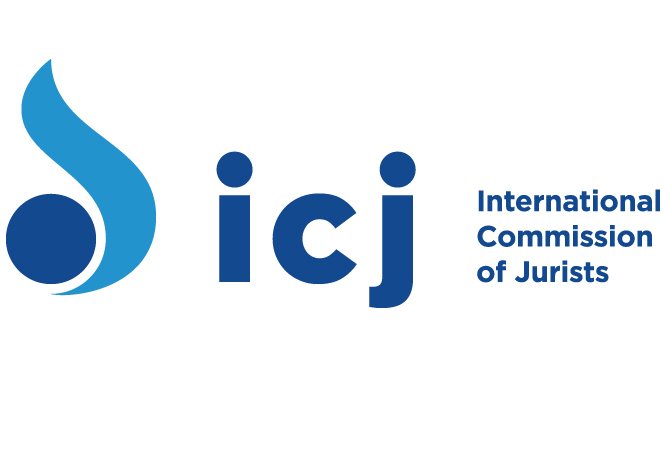
Jan 6, 2017
The ICJ has published another translation of its Practitioner’s Guide N°1 International Principles on the Independence and Accountability of Judges, Lawyers and Prosecutors.
The Guide outlines the roles to be played by a strong legal profession, an independent judiciary and an impartial and objective prosecuting authority.
Part one of this guide provides an analysis of the law and concrete examples drawn from international practice. Part two includes relevant global and regional standards on the topic.
References to international decisions, reports, texts of treaties and other international standards allow the Guide to be used as a reference book by legal practitioners and policy makers in Uzbekistan.
Uzbekistan-PGN°1-Publications-Practitioners’ Guide Series-2017-UZB (full text in PDF)
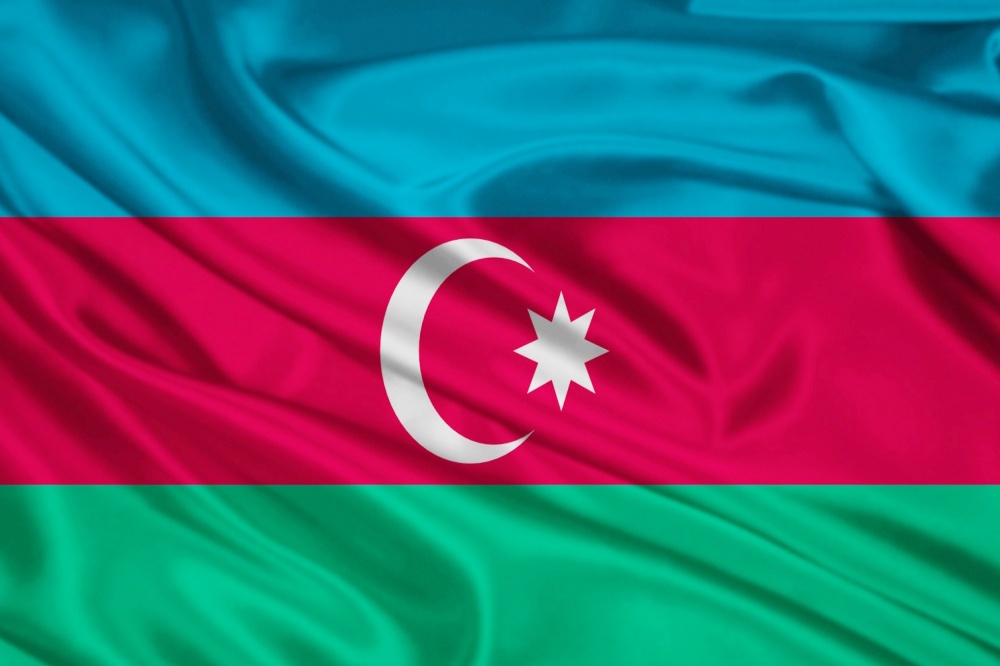
Nov 14, 2016
The ICJ has published a translation of its Practitioner’s Guide N°1 International Principles on the Independence and Accountability of Judges, Lawyers and Prosecutors.
This is the first comprehensive analysis of the existing standards and compilation of universal and regional instruments published in Turkmen.
The Guide outlines the roles to be played by a strong legal profession, an independent judiciary and an impartial and objective prosecuting authority.
Part one of this guide provides an analysis of the law and concrete examples drawn from international practice. Part two includes relevant global and regional standards on the topic.
References to international decisions, reports, texts of treaties and other international standards allow the Guide to be used as a reference book by legal practitioners and policy makers.
Turkmenistan-PG N°1-Publications-Practitioners’ Guide Series-2016-TKM (full guide in Turkmen, PDF)
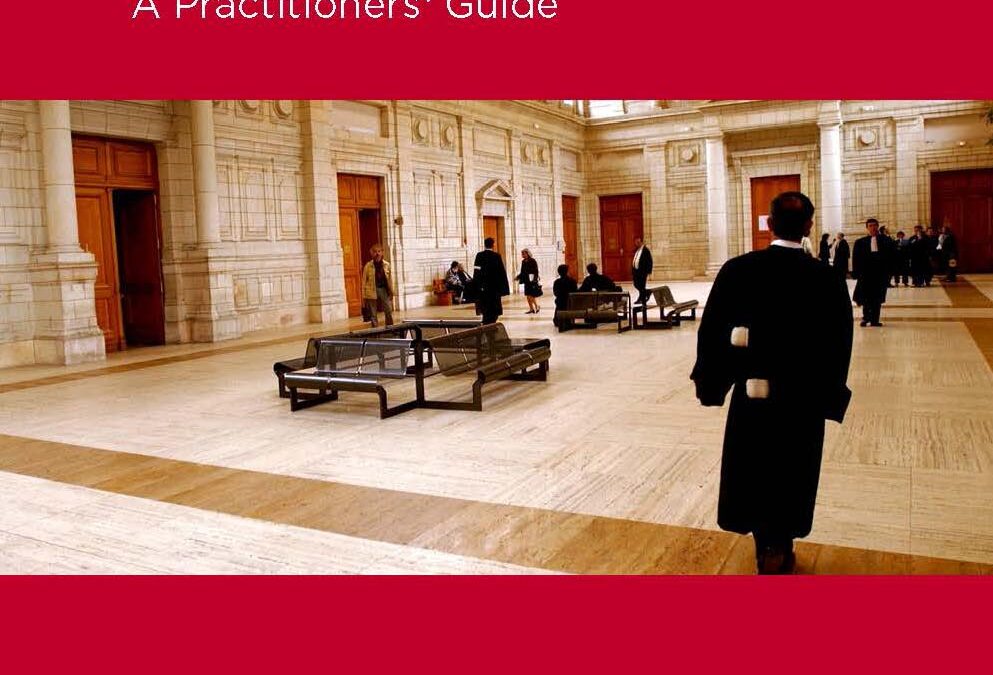
Jun 6, 2016
ICJ Practitioners Guide No. 13 on Judicial Accountability addresses mechanisms and procedures to ensure accountability for serious judicial misconduct, such as corruption or complicity in human rights violations, while preserving the independence of the judiciary. (Available in English, Burmese and Nepali)
It focuses on international standards on accountability mechanisms and procedures, illustrated by practical examples. The Guide addresses the need for all countries to ensure effective judicial accountability, while also including special chapters on situations of transition and developing countries.
The Guide updates and expands on previous guidance contained in the ICJ publication, Practitioners Guide No. 1: International Principles on the Independence and Accountability of Judges, Lawyers and Prosecutors, as well as Practitioners Guide No. 7: International Law and the Fight Against Impunity. It also builds on earlier work of the ICJ on the theme of judicial corruption, including Strengthening Judicial Independence, Eliminating Judicial Corruption.
This Guide addresses not only the accountability of individual judges, and the accountability of judiciary as an institution, but also State responsibility under international law, particularly in relation to harm caused to victims of violations by judges.
The Guide has been greatly informed by the contributions of outside experts, including the participants to a consultation on judicial accountability in developing countries, convened by the ICJ Centre for the Independence of Judges & Lawyers in Tunisia 8-9 October 2015, as well as the 2015 CIJL Geneva Forum of Judges & Lawyers, 14-15 December 2015.
Among the topics covered by the Guide are:
- The international legal frameworks for the obligation to ensure an independent, impartial and accountable judiciary.
- The forms of judicial accountability, including:
- Remedy and reparation for victims,
- The responsibility of the State,
- Removal from office, disciplinary sanctions, and other administrative measures,
- Criminal responsibility, and
- The right to the truth.
- The structure and elements of accountability bodies, such as:
- Review of decisions through appeal or judicial review,
- Judicial councils,
- The ordinary courts,
- Parliamentary procedures,
- Ad hoc tribunals,
- Anti-corruption bodies,
- Civil society monitoring and reporting,
- National human rights institutions,
- Professional associations,
- International accountability mechanisms.
- Procedural issues, including:
- Necessary powers for accountability mechanisms,
- Procedural rights of the judge,
- Procedural rights of complainants and victims,
- Publicity and transparency,
- Procedures for lifting judicial immunity,
- Temporary suspension during proceedings, and
- Selective enforcement for improper purposes.
- Mechanisms in exceptional circumstances, such as transitions from undemocratic or authoritarian regimes, including:
- Truth commissions,
- Vetting, and
- Mass removal and re-application.
- Particular challenges in relation to developing countries.
(An online compilation of international standards on independence and accountability of judges, as well as independence of lawyers and prosecutors, is available here.)
The ICJ Practitioners Guide on Judicial Accountability, and the research and consultations on which it is based, would not have been possible without the financial support of the Republic and Canton of Geneva and the Ministry of Foreign Affairs of Finland.
Universal-PG 13 Judicial Accountability-Publications-Reports-Practitioners Guide-2016-ENG (full guide in English, in PDF format)
Universal-PG13 Judicial-Accountability-Publications-Reports-Practitioners Guide-2016-Burmese (full guide in Burmese, in PDF format)
Universal-PG13 Judicial-Accountability-Publications-Reports-Practitioners Guide-2016-Nepali (full guide in Nepali, in PDF format)
To provide feedback on the Guide please respond to this online survey: https://www.surveymonkey.com/r/Q5VKMRM
To order printed copies, or for other queries, please contact Matt Pollard (matt.pollard(a)icj.org).
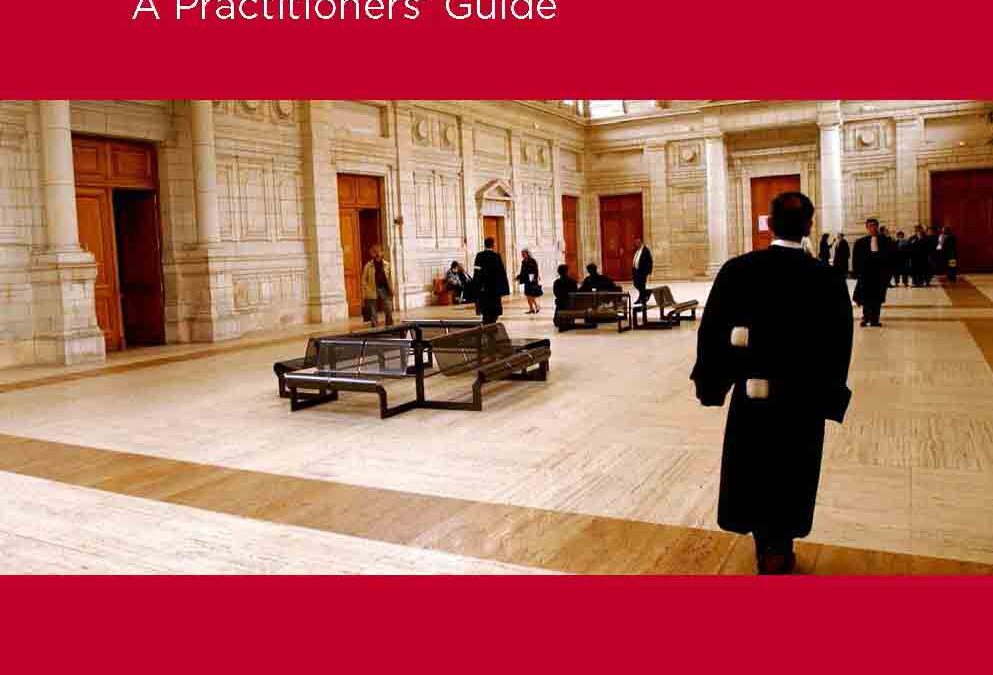
Mar 8, 2016
The ICJ addresses women’s access to justice for gender based violence in its new Practitioners’ Guide, launched today on International Women’s Day.
Since the early 1990s there has been international recognition of the problem of gender-based violence and awareness that this impairs the ability of women and girls to access and enjoy all the rights that should be available to them as afforded under international law.
However, in 2016, violence against women remains a public health problem of epidemic proportions, thought to affect between 35-70 per cent of all women and girls at some point during their lives.
The ICJ’s 12th Practitioner’s Guide, Women’s Access to Justice for Gender-Based Violence, is designed to support legal practitioners and human rights defenders involved, or interested, in pursuing cases of gender-based violence.
Lasting change to address the root causes of violence against women can only take place as part of a coordinated effort on behalf of multiple stakeholders, however the ICJ believes that legal practitioners and human rights defenders are indispensible to addressing the problem and realizing women’s access to justice.
Access to justice for gender-based violence means that States must implement a range of measures that recognize violence against women as a crime and ensure appropriate procedures are in place that enable investigations, prosecutions and access to effective remedies and reparation.
These measures may, where necessary, include amending or adopting national legislation.
The ICJ produced this Guide as part of an ongoing project on empowering legal practitioners and human rights defenders seeking justice for women.
Woven into the Guide are commentaries, reflections and recommendations from legal advocates and women human rights defenders from their experiences in this area.
The Guide provides information about regional and international law and standards relevant to gender-based violence, advice on implementing these standards as part of domestic law reform and examples of existing good practice in seeking protection for women.
It also contains a summary of some leading academic literature and civil society commentary and research, signposting users to other in-depth sources where these may be potentially relevant.
The new Guide also addresses the practical issues that are faced by women who have been subject to gender-based violence and the steps that are necessary to secure their access to justice in practice.
It considers women’s experiences of the criminal justice system and reflects on how the justice process deals with women’s safety and need for access to services beyond legal assistance.
The ICJ intends for this guide to be used as a practical tool to assist in navigating individual cases as well as a means of advocating for change on a larger scale.
The ICJ believes that enabling women’s access to justice for gender-based violence will lead to new norms of acceptability, where children and young people are raised to reject gender discrimination and violence.
Download
Universal-Womens accesss to justice-Publications-Practitioners’ Guide Series-2016-ENG (full guide English, in PDF)
Universal-Womens accesss to justice-Publications-Practitioners’ Guide Series-2019-ARA (full guide Arabic, in PDF)
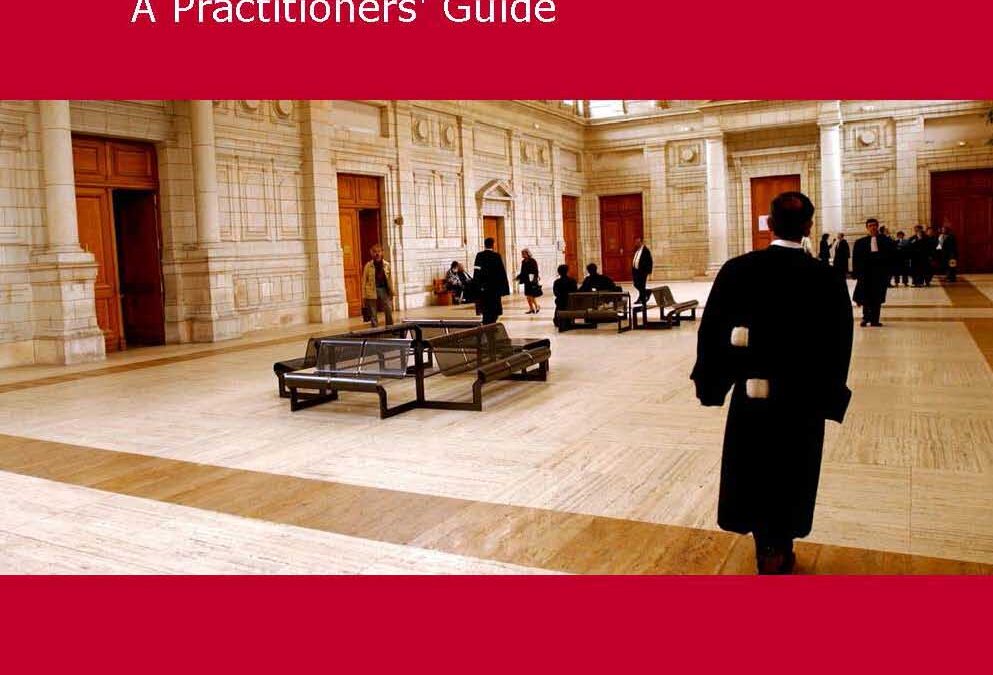
Feb 19, 2016
Today, the ICJ publishes Refugee Status Claims Based on Sexual Orientation and Gender Identity – A Practitioners’ Guide.
The organization has decided to publish this guide for two main reasons.
First, persecution of individuals motivated in whole or in part by ignorance of, prejudice and hatred against their real or imputed sexual orientation and/or gender identity (SOGI) is rife in all regions of the world, with serious and widespread human rights abuses being perpetrated too often with complete impunity.
Therefore, claims to refugee status under the Refugee Convention for reasons of real or imputed SOGI are unfortunately likely to increase in all regions, given that around the world, lesbian, gay, bisexual, transgender and intersex individuals continue to be targeted for egregious human rights abuses, paradoxically, in part, because they have become more visible by asserting their existence, rights and agency outside the relative safety of “the closet”.
Secondly, while persecution for reasons of real or imputed SOGI is not a new phenomenon, in many asylum countries there is a greater awareness that people fleeing persecution for those reasons are entitled to be recognized as refugees under the Refugee Convention.
Nonetheless, this is an area of the law of refugee status where the application of the refugee definition remains inconsistent, as it is complex and fraught with both substantive and procedural challenges.
The ICJ’s latest practitioners’ guide describes both in general and specific terms each element of the refugee definition under the Refugee Convention that is critical to understanding and doing justice to claims based on SOGI.
After discussing how to establish refugee claimants’ credibility with respect to SOGI, the structure of the practitioners’ guide follows the relevant elements of the refugee definition in Article 1A(2) of the Refugee Convention, namely: well-founded fear; persecution; for reasons of; membership of a particular social group; and failure of State protection.
The guide also addresses the concepts of internal flight/relocation alternative and sur place refugee claims, which, while not expressly mentioned in the Refugee Convention, are increasingly critical to refugee claims for reasons of SOGI.
The practitioners’ guide is intended to provide both legal and practical interpretative guidance on those types of refugee claims to:
- legal practitioners representing individuals;
- others who assist refugee claimants, whether in a professional or voluntary capacity, including members of non-governmental organizations;
- decision-makers within refugee status determination authorities and members of the judiciary presiding over claims to refugee status;
- officials within government departments issuing asylum policy guidance and instructions;
- UNHCR officials both within the Division of International Protection and those who carry out refugee status determination under the agency’s Statute; and
- refugee claimants themselves.
The ICJ’s aspiration and ultimate aim in producing this practitioners’ guide is to provide enduring legal and practical advice on the interpretation of the refugee definition under the Refugee Convention in respect of claims to refugee status based on SOGI notwithstanding the fact that this is an area where the law of refugee status is particularly fast-moving and is constantly evolving.
Finally, the ICJ hopes that this practitioners’ guide will assist in ensuring that people entitled to international protection for reasons of real or imputed SOGI be recognized as refugees under the Convention.
universal-pg-11-asylum-claims-sogi-publications-practitioners-guide-series-2016-eng (full book in PDF)









